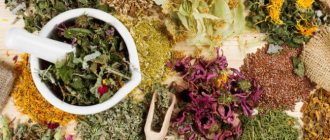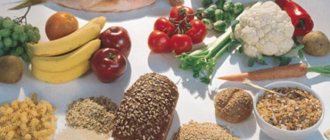Pancreatitis is an acute or chronic inflammation of the pancreas. It is dangerous due to intoxication, since pancreatic enzymes begin to decompose tissue, and necrosis of the gland, sometimes leading to death. Outside of acute attacks, patients with pancreatitis are recommended to follow a strict diet designed to prevent re-inflammation and relieve the load on the pancreas.
In difficult times of fighting an illness, a person wants something tasty and fresh, especially in autumn and winter, when the choice of fresh products is limited. During the cold season, the body feels the need for vitamins, and bright colors attract a look tired of dullness and twilight. Tangerines and oranges are popular winter fruits. Southern fruits are considered real vitamin bombs and do not lose their quality during prolonged storage. Diets prescribed for patients with pancreatitis limit the consumption of fresh vegetables and fruits; it is worth assessing your health status before eating a sour slice. Please note that in the days after an exacerbation, it is advisable to consume vegetables and fruits after heat treatment in pureed form, in the form of unsweetened decoctions, juices, mousses, and purees.
Exacerbation of inflammation of the pancreas
The effects of oranges on the body
Oranges are not only very sweet and juicy, but also healthy fruits. The benefits of the fruit include the following effects on the body:
- Strengthens the immune system.
- Helps relieve inflammatory processes.
- Strengthens bones.
- Improves joint condition.
- Normalizes blood circulation.
- Lowers cholesterol and promotes the dissolution of cholesterol plaques.
- Protects cells from the destructive effects of free radicals and activates their removal from the body.
- Reduces the risk of developing coronary disease.
- Normalizes potassium-sodium balance.
- Improves heart function.
- Improves memory and concentration.
- Helps get rid of irritability and excessive anxiety.
- Improves mood.
- Protects the eye membrane from damaging factors.
- Nourishes the retina of the eye, improves visual acuity.
- Facilitates the removal of mucus from the lungs.
- Improves the condition of the mucous membranes of the respiratory tract.
- Reduces the severity of asthmatic symptoms, reduces the risk of relapse of attacks of the disease.
- Improves digestion.
- Normalizes microflora and intestinal functioning.
- Reduces the risk of kidney stones.
- Improves reproductive function.
- Strengthens hair and nails.
- Helps smooth out wrinkles, resolve scars.
- Helps fight acne and age spots.
It should be noted that not only the pulp, but also the peel of the fruit has beneficial properties:
| Zest | Skin |
| Decoctions of the zest help fight cholesterol and excess weight. | Masks based on orange peel help smooth out wrinkles, improve skin tone and elasticity, and help get rid of small stretch marks. |
Compound
Orange is almost 90% water. 100 grams of product contains:
- 87 grams – water;
- 8.1 grams – carbohydrates;
- 2.2 grams – fiber;
- 0.9 grams – proteins;
- 0.2 grams – fats.
Fruits are enriched with useful substances:
- vitamins A, B, C, E, H, PP;
- potassium, calcium, magnesium, phosphorus, aluminum, boron, iron, iodine, fluorine;
- amino acids;
- in small quantities - Omega-3 and Omega-6 fatty acids;
- flavonoids.
Calorie content
Oranges are low-calorie foods. One hundred grams of pulp contains only 36 kcal.
Orange peel is also enriched with essential oils, which are actively used to treat bleeding gums, periodontal disease, improve skin condition, and combat hair fragility and loss.
What to choose at the holiday table: tangerine or orange?
When comparing different types of citrus fruits, consider their chemical composition. In the case of oranges, we can say that tangerines are much safer, since the concentration of organic acids in them is much lower.
However, the introduction of even these fruits to the menu should be monitored under the control of the general condition. If you experience any signs of deterioration, even minor ones such as nausea or abdominal pain, you should avoid eating tangerines for at least a month. And if an allergic reaction does occur, then it is best to forget about them altogether, because each subsequent use of the allergen causes a more severe reaction than the previous one, up to anaphylactic shock.
In the absence of contraindications, these fruits can also be combined in salads to obtain a unique and original taste. However, please note that these dishes must not contain any other prohibited items, details of which can be found in other departments.
Under what conditions is it prohibited to eat oranges?
Despite all its usefulness, the fruit is not recommended for use if:
- Personal intolerance to citrus fruits.
- Elevated levels of potassium in the blood.
- Increased uterine tone or threat of miscarriage for this reason.
- Exacerbation of diseases of the digestive tract before the onset of complete remission.
- Increased acidity of gastric juice (this point applies to sour varieties, as well as unripe oranges).
| Factor | Effect on the body |
| Allergenicity | All citrus fruits are quite allergenic products. Therefore, the introduction of these fruits into the diet should begin with a small amount of pulp. |
| Potassium enrichment | The product is saturated with potassium, so it is prohibited to use it if you have hyperkalemia. |
| Increased vitamin C content | Oranges are enriched with vitamin C, which improves uterine tone. For this reason, gynecologists advise excluding citrus fruits from the diet of pregnant women who have been diagnosed with increased uterine tone or are at risk of miscarriage or premature birth. |
| Contains acids and coarse dietary fiber | The product is rich in acids and dietary fiber, therefore, in case of exacerbation of diseases of the gastrointestinal tract, oranges should not be eaten in any form (pulp, juices, decoctions, as part of dishes). It is allowed to begin introducing fruits into the diet only after achieving stable remission. |
Possible negative reactions
Even healthy people should not get too carried away with these juicy delicacies. Eating fruit in excessive quantities can lead to the development of the following adverse reactions:
- Allergies (rash, itching, swelling of the skin, difficulty breathing, etc.).
- Digestive disorders (flatulence, increased gas formation, gastrointestinal colic, diarrhea, nausea and vomiting).
- Cramps.
- Headache.
- Sleep disturbance.
- Formation of kidney stones.
- Deterioration of the strength of tooth enamel, yellowing of teeth.
Oranges and chronic pancreatitis
Appetizing oranges can be returned to the diet only after the onset of stable remission of chronic pancreatitis (provided there is no diabetes mellitus). But even in this phase of the disease they should be treated with a fair amount of caution. Otherwise, excessive consumption of these fruits or, for example, a fasting orange diet can provoke a new exacerbation of an unpleasant illness.
With reasonable use and good tolerance, aromatic oranges have a complex beneficial effect, consisting of:
- immunostimulation (due to ascorbic acid and zinc);
- antioxidant activity (preventing aging, inflammation, cancer);
- general tonic effect (including the effect on vascular tone);
- natural anti-infective protection (due to the activity of phytoncides);
- prevention of constipation (due to fiber);
- low calorie content.
The advisability of consuming citrus for problems with the pancreas
Oranges are rich in fiber, vitamins and minerals, which improve digestion, normalize gastric and intestinal motility, and help eliminate excess cholesterol. However, with the development of inflammatory diseases of the gastrointestinal tract, especially in the acute stage, fruits can negatively affect the body.
Whether it is possible to eat oranges with pancreatitis depends on the stage, form of the disease, and the patient’s condition.
For acute pancreatitis
Consumption of oranges in acute pancreatitis is strictly contraindicated. This is due to the following factors:
| Criterion | Features of the impact |
| Fiber content | In acute inflammation of the pancreas, dietary fiber irritates the mucous membrane of this organ, as well as the stomach and intestines, which leads to gastrointestinal colic, flatulence, increased gas formation, and stool disturbances. |
| Saturation with ascorbic and other acids | Acids increase the enzyme activity of the pancreas. Since the outflow of enzymes into the intestines is difficult, they are activated in the pancreas and further injure and irritate the tissues of the organ, which leads to severe pain. As a result, there is an even greater exacerbation of the inflammatory process. |
| Orange contains saccharides | In acute pancreatitis, insulin production is impaired, so eating sweets can lead to the development of diabetes. |
| Risk of developing allergies | Since the immune system is significantly suppressed during acute inflammation, the likelihood of developing allergies increases. Orange contains many allergenic substances, so the risk of a negative reaction due to its consumption is very high. |
You can start introducing fruit into your diet only after achieving stable remission (approximately four to five months after stopping an acute attack of the disease), provided there is a complete absence of pain and other symptoms of the disease.
For chronic pancreatitis
Oranges for pancreatitis in remission, as well as for the chronic form of the disease, can be eaten periodically in limited quantities (no more than one piece per day).
At the recovery stage, the pancreas needs vitamins and minerals, and oranges can provide the organ with a supply of the necessary components. The fruit also has the following positive effects:
- Strengthens the organ's immunity.
- Reduces the risk of recurrence of attacks of exacerbation of the disease.
- Prevents the development of inflammatory processes.
- Inhibits the activity of pathogenic microorganisms.
- Normalizes intestinal microflora, improves its motility.
- Reduces cholesterol levels.
- Normalizes the enzyme activity of the gland.
- Accelerates the regeneration of damaged pancreatic tissue.
Orange, thanks to this effect, improves digestion and metabolism, promotes the replacement of damaged organ tissues with healthy ones, due to which the pancreas recovers faster.
Moreover, even at the stage of remission and with chronic pancreatitis, it is not recommended to internally use decoctions and infusions of orange peel. The peel of the fruit is enriched with essential oils, which can provoke a relapse of an acute inflammatory attack.
For cholecystitis
Oranges for cholecystitis can be consumed only at the stage of stable remission, as well as in the chronic form of the disease without exacerbation, because:
| Acids | Alimentary fiber |
| They stimulate the production of not only digestive enzymes, but also bile. This can lead to an even greater aggravation of the inflammatory process, as well as provoke the formation of stagnation of bile masses, the appearance of heartburn, and acid belching. | In conditions of an acute inflammatory process, the mucous membranes of the digestive organs will be irritated. This will lead to colic, increased gas formation, and bloating. |
At the same time, orange can be successfully consumed when it is necessary to activate the production of bile masses, to improve the movement of bile through the ducts.
After achieving stable remission, as well as in the chronic form of the disease, eating a small amount of oranges (no more than one per day) will help:
- Strengthen the protective functions of the gallbladder.
- Establish bile production.
- Improve digestive and metabolic processes.
- Activate the replacement of damaged gallbladder cells with healthy ones.
It is allowed to introduce oranges into the diet no earlier than three months after the relief of an acute attack of cholecystitis.
Oranges and acute pancreatitis
Any acute pancreatitis, unfortunately, is an indisputable contraindication to eating delicious oranges. After all, the pulp of these sunny fruits contains:
- ascorbic acid (just one orange contains the daily requirement of vitamin C - 60 mg) and other acids that stimulate the activation of enzyme production by the cells of the inflamed and swollen pancreas, this further enhances its pathological changes;
- excess glucose, excessive intake of which is undesirable in the acute phase, since in many patients the production of insulin by the pancreas is suppressed;
- a lot of fiber (2.2 g per 100 g of oranges), which increases gas formation, pain and diarrhea;
- substances that are strong allergens.
In addition, orange peel is rich in essential oils. These substances can also enhance the formation of pancreatic enzymes. Taking all this into account, you should forget about oranges until the inflammatory process is completely resolved and complete rehabilitation is achieved.
How to properly introduce citrus fruits into your diet
Even at the stage of stable remission, with chronic pancreatitis outside the acute stage, oranges should be consumed with caution. In order not to provoke an exacerbation of the disease, you must adhere to the following important rules:
- Start eating fruit with one slice per day, gradually increasing the amount to ½-1 fruit, provided the body reacts normally.
- Do not consume oranges or fruit juice on an empty stomach, as these foods stimulate the production of digestive enzymes.
- Eat only ripe fruits of sweet varieties, without signs of rotting, mold or pest damage.
- Buy fruit only when it is in season to avoid being poisoned by the chemicals used to bring the fruit to maturity.
- On the day of eating an orange, do not eat sour or new fruits.
- It is not recommended to drink concentrated orange juice; it is advisable to dilute it with boiled water in a 1:1 consistency.
Sour citrus fruits
A special feature of citrus fruits is their high content of ascorbic acid, which gives the fruit a fresh, sour taste. The acid content in fruits is too high; it is recommended to exclude them from the diet of patients with pancreatitis.
First of all, the instruction concerns the popular Lima lemon; grapefruits also threaten to release excessive amounts of enzymes. You should be careful not to consume such fruits boiled or otherwise prepared. Do not add lemon or lemon juice to tea or other drinks.
How to choose and buy
It is important for a person suffering from pancreatitis to eat only ripe, high-quality tangerines. When choosing a product for dietary nutrition, you need to pay attention to the following points:
- the peel of a ripe fresh tangerine has a uniform bright orange tint; there should be no dents, dark or light spots, mold or signs of rotting on the surface of the citrus;
- when you lightly press the fruit, juice will spurt out of the peel: this indicates that the fruit is sufficiently ripe;
- the unpleasant odor emanating from tangerine is a reason to refuse to purchase. You should also not purchase fruits with a white coating, a sticky, wet, shiny surface or green streaks on the skin: these signs mean that the fruit has been chemically treated and is harmful to health;
- for pancreatitis, it is recommended to eat sweet tangerines: they contain less acids that irritate the pancreas. Sweet fruits can be determined by weight: they are heavier than sour ones;
- If possible, you should purchase seedless tangerines. The most suitable for dietary nutrition are Moroccan and Spanish: their pulp contains no seeds or is extremely rare.
The unpleasant smell emanating from tangerines is a reason to refuse to purchase.
In order for tangerines to retain their pleasant taste for as long as possible and not lose their beneficial properties, they should be stored in the refrigerator at a temperature of +6°C.










